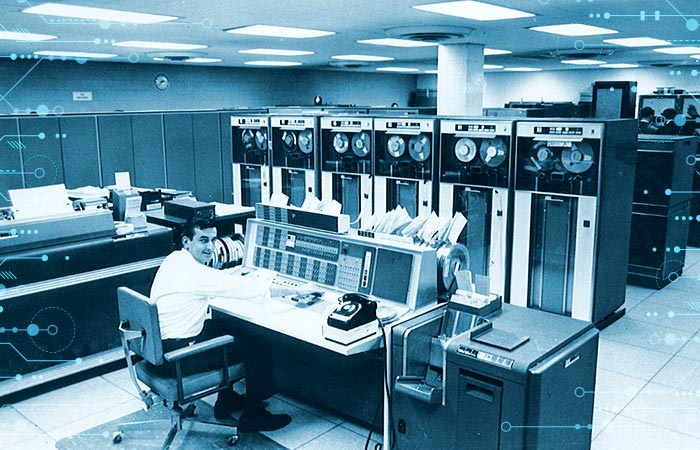The internet has become a necessary part of our dynamism, from online shopping to communication and entertainment. However, the origins of this technology are not well known, and its history has a long and fascinating journey that spans several decades. In this essay, we will explore the evolution of the Internet, from its origins in ARPANET to the advent of the World Wide Web.
Contents
The Birth of ARPANET & WWW
The Internet’s journey began in the 1960s when the United States Department of Defense’s Advanced Research Projects Agency (ARPA) funded a research project to develop a communication system that could withstand a nuclear attack. The result of this project was the Advanced Research Projects Agency Network (ARPANET), created in 1969. The initial aim of ARPANET was to connect a few dozen computers at different universities and research institutions. This network was based on packet-switching technology, which allowed data to be transmitted in small packets across multiple nodes, making it more efficient and reliable than traditional circuit-switched networks.
The concept of the World Wide Web was developed by Tim Berners-Lee in 1989 while working at CERN in Switzerland. Berners-Lee’s vision was to create a system that would allow researchers at CERN to share information and collaborate more easily. He developed the first web browser, called WorldWideWeb, and the first web server, which ran on a NeXT computer. The World Wide Web was based on hypertext, which allowed users to navigate between documents by clicking on hyperlinks. This made it easy to create and share knowledge on the internet, and the World Wide Web quickly evolved into the most popular way to access the internet.
The Growth of the Internet
In the 1990s, the internet underwent explosive expansion. The introduction of commercial internet service providers (ISPs) made it easy for individuals and businesses to connect to the internet. The first popular web browser, called Mosaic, was released in 1993 and made the World Wide Web accessible to a wider audience. The introduction of search engines like Yahoo! and Google made it easier to find information on the internet. By the conclusion of the 1990s, the internet had become a worldwide phenomenon, with millions of users accessing it every day.
Since its inception, the internet has undergone several major changes and transformations. Here are some of the most significant: In the early 2000s, social media platforms like MySpace and Facebook emerged, allowing users to create profiles, share information, and connect with friends and family. Social media has since become one of the most popular uses of the internet, with billions of users worldwide. With the introduction of smartphones and tablets, the internet has become more accessible than ever before. Mobile devices allowed users to access the internet from anywhere, at any time and led to the development of mobile-friendly websites and apps.
The internet of things (IoT) means a network of connected systems that can communicate with each other and trade data. This includes everything from smart home devices to industrial machinery. The IoT has the potential to revolutionize many enterprises and make our lives more efficient and timely. Advances in artificial intelligence (AI) have made it feasible for machines to accomplish tasks that were once the sole domain of humans. This includes things like natural language processing, image recognition, and decision-making. AI is already being used in everything from customer service to healthcare, and its applications are only expected to grow.
Conclusion
In conclusion, the internet has come a long way since its origins in ARPANET in the 1960s. Today, it is an essential part of our lives, connecting billions of people around the world and providing access to an endless stream of information, entertainment, and services. The internet’s journey has been marked by significant changes and transformations, from the birth of the World Wide Web to the rise of social media, mobile devices, the internet of things, and artificial intelligence. As we look to the future, it’s clear that the internet will continue to evolve and shape our world in ways we cannot even imagine. It is an exciting time to be part of the internet’s journey, and we can’t wait to see what the future holds.



